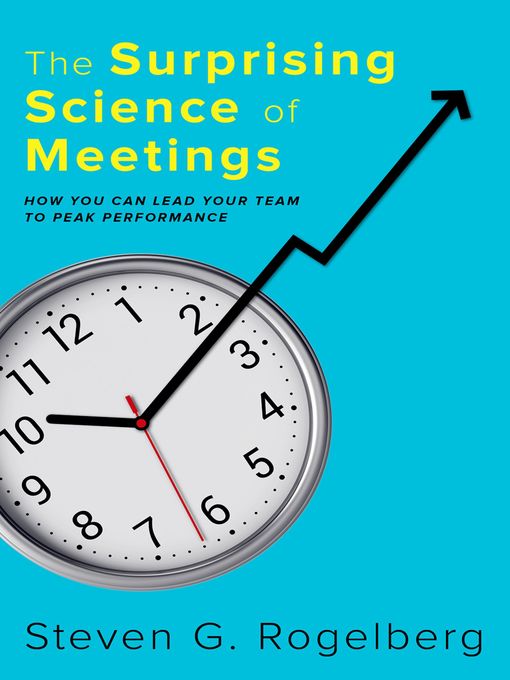The Surprising Science of Meetings
How You Can Lead Your Team to Peak Performance
-
Creators
-
Publisher
-
Release date
December 3, 2018 -
Formats
-
Kindle Book
-
OverDrive Read
- ISBN: 9780190689230
-
EPUB ebook
- ISBN: 9780190689230
- File size: 1643 KB
-
-
Languages
- English
-
Reviews
-
Publisher's Weekly
October 8, 2018
Science, yes—but there’s little surprising about this slim, narrow-scope proposal from Rogelberg, a UNC–Charlotte management and psychology professor. Setting the scene, he observes in the preface that meetings have their upsides—when done well, they provide employees with “organizational democracy” and “buy-in”—but also get a consistently bad rap, and for good reason. In one study, 47% of workers reported meetings as the number-one time-waster in their offices. Rogelberg’s stated goal, then, is to bring a systematic, statistics-based approach to understanding and improving meetings, usable not just in the workplace but in community and religious gatherings as well. How can meetings be more productive—and does science have the answer? One obstacle is that people, according to studies, tend to naturally overestimate their own leadership ability—but, Rogelberg counsels, the typical manager can do better by shortening meetings, inviting fewer participants, keeping the tone positive, and avoiding the “folly” of remote call-ins. Simultaneously sparse and padded, Rogelberg’s work only confirms what the average office worker already knew even without the benefit of scientific confirmation.
-
Loading
Why is availability limited?
×Availability can change throughout the month based on the library's budget. You can still place a hold on the title, and your hold will be automatically filled as soon as the title is available again.
The Kindle Book format for this title is not supported on:
×Read-along ebook
×The OverDrive Read format of this ebook has professional narration that plays while you read in your browser. Learn more here.

